- Home
- Philip Pullman
Two Crafty Criminals! Page 10
Two Crafty Criminals! Read online
Page 10
“But if a person was frightened of cabbages,” persisted Thunderbolt, “they wouldn’t want to be a greengrocer in the first place.”
“But if they was,” said Benny hotly, “we could train ’em out of it, and then they could be one. Seems to me you don’t want to help Dick. Seems to me you don’t want to win this bet. You probably got a bet phoby,” he added severely.
Thunderbolt wasn’t sure about that. He hadn’t bet money very often, because Pa didn’t approve except for sixpence on the Derby, but when he had (with the twins’ advice), he’d generally been lucky. But then, the twins’ advice was usually sound, and they’d advised him to put everything he had on Dick at two to one. It had troubled Thunderbolt a bit, though, because the shilling he’d bet with Snake-Eyes Melmott had actually been given him by Pa to pay for a trigonometry lesson, and if Dick didn’t propose soon, Thunderbolt would be in trouble.
Trigonometry was a new craze for Thunderbolt. He’d become interested in it ever since reading about how the great detective Sexton Blake solved a murder mystery by using it to work out precisely what angle the sun had been at in order to shine through the magnifying glass and light the fuse that set off the dynamite attached to the kidnapped Brazilian heiress. Clearly trigonometry was essential in the detective profession, and luckily there lived nearby someone who could teach it to him.
This was Miss Honoria Whittle, the daughter of Mr. Horace Whittle, the Chief Manager of the Phoenix Gasworks. Miss Whittle was a nice lady, Thunderbolt thought, and clever too, because she’d been to college and learned to be a teacher. She gave Thunderbolt trigonometry lessons once a week, on Thursdays, which (come to think of it) was today, and if he didn’t hurry, he’d be late.
He said goodbye to Benny and raced off to the Whittles’ house in Nelson Square, where Miss Whittle was waiting for him as usual in the dining room, with the textbooks all ready. She was a gentle-looking lady, just getting a bit faded, with soft blond hair and soft blue eyes. She wasn’t as pretty as Daisy, of course, but then, Miss Whittle was really old, sixty probably, or maybe thirty, anyway.
“Hello, Sam,” she said, because he was only called Thunderbolt on gang business.
“Miss Whittle,” he said, “d’you reckon someone could have a love phoby?”
“A what?”
“I mean Dick Smith, who’s in love with Daisy Miller, only he daren’t ask her. Benny reckons he’s got a love phoby.”
“Ah! I think you mean ‘phobia.’ Well, you could be right. I think I knew someone who had a love phobia,” she added.
“Was he in love with you?” said Thunderbolt, interested.
Miss Whittle coughed wistfully. “Come on, Sam, let’s do some work,” she said, and they began.
Thunderbolt was half anxious in case she asked him for the shilling, but she was too nice to fuss. When they’d finished the trigonometry, she gave him a biscuit as she always did, and they talked about Dick and Daisy. Miss Whittle was really interested. Thunderbolt was itching to tell her about the bet, because perhaps she might like to put some money on it too. But he didn’t.
That night one of Benny’s wishes came true. He wanted a crime to solve, and someone provided Lambeth with a first-rate one.
The Worshipful Company of Gas-Fitters had several valuable silver dishes and trophies and so on, which they kept in a cabinet in Gas-Fitters’ Hall, near the Phoenix Gasworks. There were saltcellars and soup tureens and goblets and salvers, and the prize of the whole collection was the Jabez Calcutt Memorial Trophy for the Apprentice Gas-Fitter of the Year, consisting of a solid silver gas-fitter’s wrench mounted on an ebony plinth and surrounded with silver laurel leaves. Dick’s name was on it, because he’d won it when he was an apprentice. It was a real work of art.
And that night someone broke into Gas-Fitters’ Hall and stole the lot.
The news of the burglary was all round the New Cut before breakfast. Ordinary burglaries were one thing, but this was a bigger job altogether than pinching a sack of potatoes from the greengrocer’s or a tin alarm clock from the pawnbroker’s window. The Worshipful Company of Gas-Fitters was an important body of men, and Gas-Fitters’ Hall was the most noble edifice in the whole of Lambeth, apart from the Archbishop’s Palace and the Lunatic Asylum, anyway.
As soon as the kids heard about it they ran there at once, and found a crowd gathered outside, staring at four policemen who were pretending to look for clues.
“I hear as they drugged the night watchman,” said Dippy Hitchcock, the hot-chestnut-and-baked-potato man. “They slipped him an unknown Chinese poison in a cup of tea, and he fell asleep and never heard nothing.”
Benny and the others listened, enthralled.
“I don’t know about that,” said Mr. Myhill solemnly, “but I’m given to understand that that silver’s worth over ten thousand pounds.”
Mr. Myhill was a bank clerk, and understood the value of money.
“Daft, if you ask me,” said Mrs. Fanny Blodgett of the Excelsior Tea and Coffee Rooms. “What do a lot of blooming gas-fitters want with ten thousand quid’s worth of silver plate?”
The men turned to her, shocked.
“Mrs. Blodgett!” said Mr. Tate, the pawnbroker. “The Worshipful Company of Gas-Fitters is a most ancient and honorable charitable association, fit to rank with the Dyers, the Tanners, the Vintners, the Merchant Taylors—all the most noble City Livery companies. Of course they need silver plate. I’m surprised at you for thinking otherwise. I thought you was a woman of sense.”
Urgently, Benny led the others away, down a little alley at the side of the building.
“This is the crime we been waiting for!” he said. “I bet we can solve it. I bet the police can’t. I bet Scotland Yard’s baffled. I reckon it’s an international gang, that’s what I reckon.”
“Or pirates!” said Angela. “Off a boat on the river. Bound to be.”
“I just hope we can solve it before Sexton Blake gets to hear about it,” said Thunderbolt.
“Well, come on!” said Benny. “What we waiting for?”
“Look at this,” said Thunderbolt. “Here’s a clue straight off.”
He pointed down at the ground. Because of the dry weather, there wasn’t much mud about just then, but a leaking overflow pipe somewhere above had dripped onto the dust in the alley and created a churned-up patch of wet yellowish earth.
“If we find someone with that color mud on their boots,” Thunderbolt said, “they’re as good as guilty. Sexton Blake knows all the different colors of London mud. He’s always checking boots and that. We oughter do the same.”
“And footprints,” said Angela. “We could look for footprints in it.”
“Yeah!” said Thunderbolt. “That’s a good idea.”
“That’s what I mean,” said Angela. “And we could’ve, and all, till you put your great plates all over it.”
Thunderbolt looked down. She was right; he’d trodden everything into a swamp. If there’d been any burglarious footprints a moment ago, there were certainly none now.
“Hmm,” he said. “Oh well.”
Benny was peering closely at a little window four feet above the ground.
“Here’s a clue,” he said.
The others gathered round. Benny was pointing at a dent in the woodwork near the window catch which looked as if it had been made by a jimmy.
“That’s where they forced their way in!” said Benny. “Betcher!”
“Yeah, could be!” said Zerlina.
Thunderbolt was peering at it closely. His glasses didn’t always work when he hadn’t cleaned them for a while, and it was hard to clean them anyway, given the usual state of his handkerchief, so he couldn’t see the little dent as well as the others could. He felt along the windowsill and found something else, though.
“Here’s a drop of wax—look.”
The others demanded to feel it too. It was almost invisible, but their fingers could make it out, all right.
“A little blob of wax,”
said Benny. “That’s definitely a clue! He musta spilled it from a candle. And look—here’s a Lucifer!”
He had spotted a match lying at the foot of the wall, and stooped to pick it up. This was the real thing, and no error. A genuine criminal match combined with a genuine criminal blob of candle wax right next to a genuine criminal jimmy dent—it was too good to be true.
“OI!”
The roar resounded down the alley, and all the kids looked up, startled. Police Constable Jellicoe, the stoutest bobby in the whole of Lambeth, was standing in the entrance.
“Get out of it! Go on! Move along there!”
Benny darted up to him, holding the match.
“Mr. Jellicoe! Look what we found! It’s a clue!”
“Oh, it’s you lot,” said P.C. Jellicoe, recognizing him. “Go on, hop it. This is a serious police investigation. What are you doing here, anyway? You oughter be in school. Or prison. I know where I’d send yer.”
“But, Mr. Jellicoe—”
“Did you hear what I said? Clear off!”
“But we got a—”
P.C. Jellicoe’s mighty hand, raised high, showed them clearly what they’d get if they didn’t do as he said. They dodged past him out of the alley and stopped in the street to look back.
“No good telling old Jelly-Belly,” said Benny. “It’s the Inspector we ought to tell. He’ll know about clues and that.”
But the inspector was inside the building, and the constable on guard at the door was even less patient than P.C. Jellicoe. Benny had to move fast to dodge the automatic clout.
“Right,” he said hotly to the policeman. “That’s it. You done it now. When the New Cut Gang catches the burglar as done this job, you’re going to look pretty silly. I wouldn’t like to be in your boots. I wouldn’t like to be a policeman then. I’d rather be a pantomime horse than a policeman when we catch the Gas-Fitters’ Hall burglar.”
The policeman sneered, and Benny and the others left in disdain.
“You better not lose that match,” said Angela. “Give us it here, I’ll look after it.”
“Not blooming likely,” said Benny. “Remember when you looked after Sharky Bob for the afternoon?”
Sharky Bob was the youngest member of the New Cut Gang, a cheerful, benevolent six-year-old who would eat anything, and often did. The twins had once borrowed him for an afternoon in order to match him against the Brixton Gobbler, an infant of similar talents, in a contest involving hard-boiled eggs. Sharky had beaten the Gobbler hands down, and the twins, who had bet a total of nine shillings on him, had run off at once to claim their winnings from Snake-Eyes Melmott. In doing so, they’d forgotten Sharky Bob altogether. He was later found happily eating his way up the Lambeth Walk from chophouse to pub to baked-potato stall, followed by an admiring crowd, but the damage had been done: the twins had earned a reputation. They won bets, but they lost things.
They gave Benny a dark look, but he was intent on fumbling in his pocket for something to put the match in.
“Here it is,” he said. “I’ll keep it in me matchbox.”
He brought out a Bryant and May’s matchbox and carefully slid it open. He had to be careful in case the unusual worm he kept in there had come alive again, but it was either dead or asleep. The worm was unknown to science, Thunderbolt said, but then, after three weeks in Benny’s pocket, probably not even its mother would have known it.
Benny prodded the worm carefully aside and put the match in the box. Or tried to.
“Here,” he said, “it won’t go.”
The match was too long for the box.
“I thought all matches was the same?” said Zerlina.
“Give us a look,” said Thunderbolt.
He held it close to his eyes. It looked like every other match he’d ever seen, except that it was, now he looked at it, a bit longer than most.
“This is an even better clue!” he said. “A highly unusual match!”
“Yeah!” Benny said, excited. “That’s right! Let’s go and ask Mr. MacPhail about it. He’ll know all right.”
MacPhail’s was the tobacconist’s at the corner of the New Cut. Mr. MacPhail sold snuff and walking sticks and Smoker’s Companions as well as tobacco and cigars and cigarettes and things, so he was bound to know about matches.
“Aye,” he said, examining it through his pince-nez. “Swedish, this is. Not a British Lucifer. Swedish.”
“How d’you know that, Mr. MacPhail?” said Benny. “I mean, apart from it being long, and that.”
“Because o’ these little marks at the end.”
They all crowded round to look. He was pointing at the unburnt end. Thunderbolt, blinking and widening his eyes, could just see two little grooves pressed into the wood on opposite sides of the square stick, a fraction of an inch from the end.
“When they make ’em,” Mr. MacPhail explained, “there’s a machine that holds the stick by one end and dips it into a tank o’ thick inflammable stuff. Then they pull it out again with a wee blob on, and that’s the head, ye see, and they march the sticks around till the head’s dry and then pack ’em in the boxes. A British Lucifer’s made the same way, only British Lucifers is held by a different kind o’ machine that makes a different kind o’ mark. Look.”
He took a Bryant and May’s matchbox from the shelf behind him and showed them a match. He was right: on this one, each of the four edges where the sides of the match met had been nipped in a little about an eighth of an inch from the end. It was quite different from the Swedish one.
“D’you sell Swedish matches, Mr. MacPhail?” said Thunderbolt.
“No, son. Only British ones.”
“So who d’you reckon might be using Swedish Lucifers round here?” said Benny.
“A sailor,” said Mr. MacPhail. “Someone in the timber trade, mebbe. Anyone who’s been to the Baltic recently.”
“Or any real Swedes,” said Thunderbolt. “Like S—”
Benny kicked his ankle to shut him up. “Right. Thanks, Mr. MacPhail,” he said, and they left.
Outside, in the street, Thunderbolt rubbed his ankle and said, “What was that for?”
“ ’Cause you might warn him, you clot!”
“Warn who? Mr. MacPhail’s not the burglar, is he?”
“Warn Sid the Swede, of course! That’s who you were going to say, wasn’t it?”
“Well, yeah,” Thunderbolt admitted.
Sid the Swede was a local villain. He was a furtive and ratlike little man who always seemed to know where you could find a bit of mislaid fruit and veg, or someone who could change the markings on a horse to make it look as it if wasn’t the one that was pinched from the stables last week.
“Betcher it ain’t Sid the Swede,” said Angela.
“Yeah, me too,” said Zerlina. “I betcher lots.”
“Give you ten to one,” said Angela.
You didn’t bet against the twins, even at odds like that.
“Why not?” said Benny.
“ ’Cause he’s in jail,” said Zerlina, “that’s why. He got caught last week nicking washing off old Mrs. Pearson’s line.”
“He got jugged for a month,” said Angela.
“Hmm,” said Benny. “Well, that puts a different confection on things. Seems to me we’ll have to go inspecting every blooming box of matches in Lambeth. Every time someone lights a cigar, we’ll have to pick up the match afterwards and see if it’s Swedish.”
“And if they’ve got yellow mud on their boots,” said Thunderbolt, “they’re done for.”
So the gang split up to go looking for Swedish matches, yellow mud, and ten thousand pounds’ worth of silver.
That evening, Dick was going to take Daisy to the Music Hall. The twins wanted to go along too, in order to supervise him, but their mother wouldn’t hear of it. She looked up from the table where she was rolling out some pasta, and her dark eyes flashed.
“What do you tink you do with that poor boy?” she said. “You leave him alone! He�
�s a-nervous, he’s a-shy, he don’t want silly faces talking to him to a-do this and a-say that and all so on. You a-pester him, I cut your troats.”
She reached for the knife with a beefy flour-covered arm, and they fled. Mrs. Peretti had been threatening to cut her daughters’ throats ever since they could remember. It was just a sign of how fond she was of them, and they always liked to hear it, because it reassured them that everything was all right; but it meant that they’d have to give Dick some careful instructions if he was to face Daisy alone.
They guessed he’d be a little early, so they waylaid him outside the Music Hall three-quarters of an hour before the show began. He was walking up and down the pavement in the sunny evening, chewing his nails and muttering to himself.
“What can I do, kids?” he said miserably. “Look at me! I’m a shadow of a man! I wish Daisy was a heavyweight boxer and I was going to go three rounds with her. I wouldn’t be half so blooming nervous. If only I could think of what to say …”
“That’s what we’ve come for, you great goopus,” said Zerlina. “Just listen and we’ll tell you what to do.”
“Now, what ladies like,” said Angela knowledgeably, “is flattery. You gotta tell her that her eyes is like stars.”
“And her lips is like cherries,” added Zerlina.
“Cherries? You sure?” said Dick.
“That’s right. And altogether she looks like a fashion plate.”
“What’s a fashion plate?”
The twins weren’t sure themselves, but they had an answer; they had an answer for everything.
“It’s a special ladies’ thing,” said Angela. “That’ll please her; you watch. Then, during intermission, you buy her an orange.”
“And in the second half you whisper, ‘Daisy, will you do me the honor of being my guest at the Gas-Fitters’ Ball?’ ”
“And she’ll say, ‘Oh, blimey, Dick, not half.’ ”
“And you say, ‘Cor, Daisy, I love yer,’ and—”
“Here she is!”
The twins fled before Daisy could see them. They were like little demons, thought Dick nervously: one second they were here, whispering mischief; the next they’d vanished. And here was Daisy, looking prettier than ever.

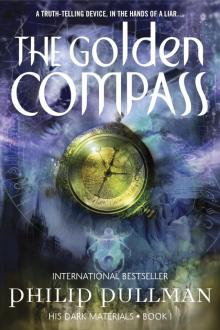 The Golden Compass
The Golden Compass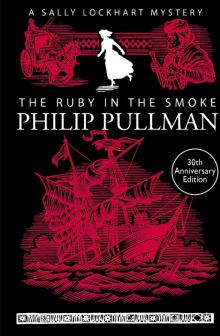 The Ruby in the Smoke
The Ruby in the Smoke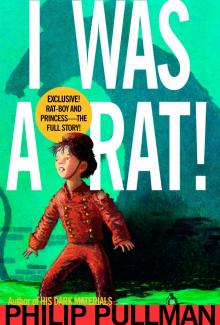 I Was a Rat!
I Was a Rat!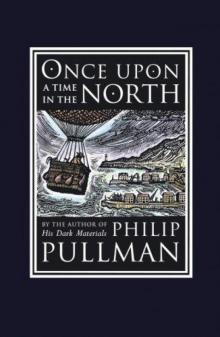 Once Upon a Time in the North
Once Upon a Time in the North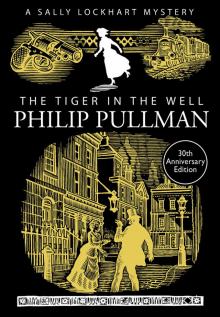 The Tiger in the Well
The Tiger in the Well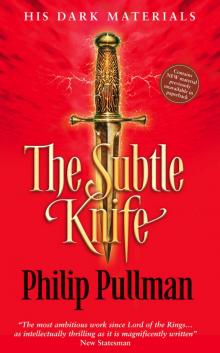 The Subtle Knife
The Subtle Knife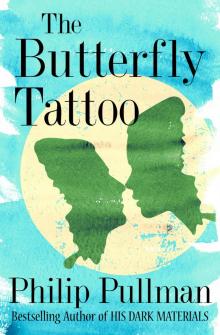 The Butterfly Tattoo
The Butterfly Tattoo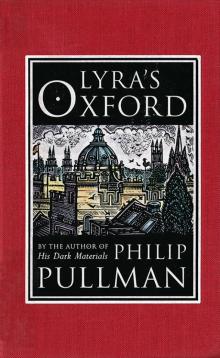 Lyra's Oxford
Lyra's Oxford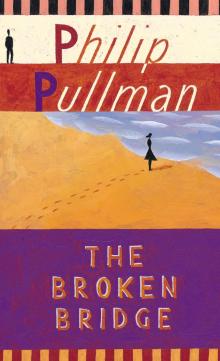 The Broken Bridge
The Broken Bridge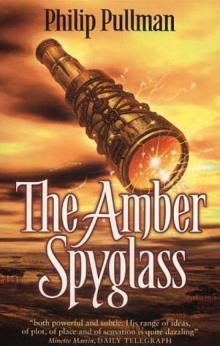 The Amber Spyglass
The Amber Spyglass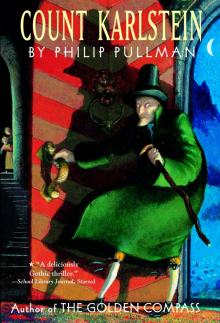 Count Karlstein
Count Karlstein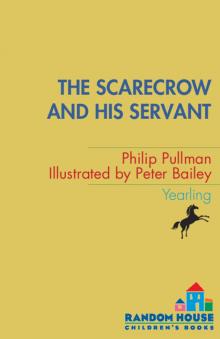 The Scarecrow and His Servant
The Scarecrow and His Servant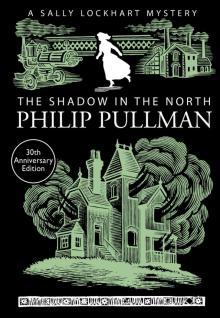 The Shadow in the North
The Shadow in the North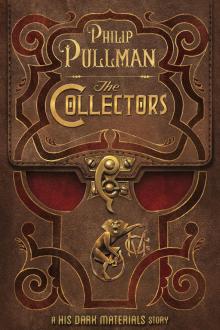 The Collectors
The Collectors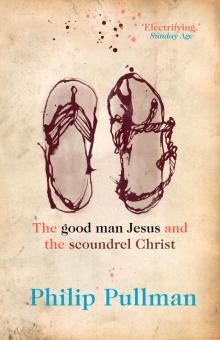 The Good Man Jesus and the Scoundrel Christ
The Good Man Jesus and the Scoundrel Christ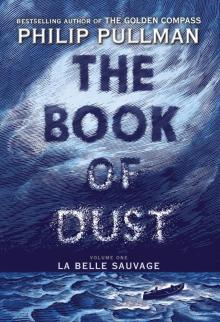 La Belle Sauvage
La Belle Sauvage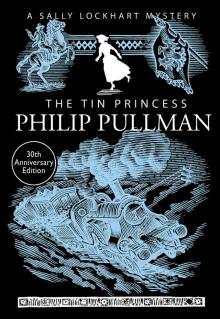 The Tin Princess
The Tin Princess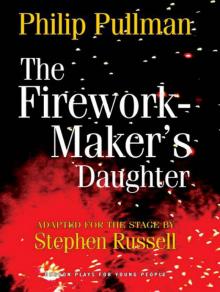 The Firework-Maker's Daughter
The Firework-Maker's Daughter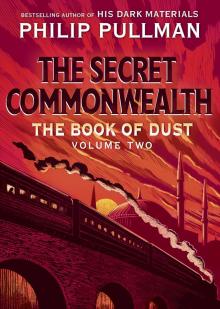 The Book of Dust: The Secret Commonwealth (Book of Dust, Volume 2)
The Book of Dust: The Secret Commonwealth (Book of Dust, Volume 2)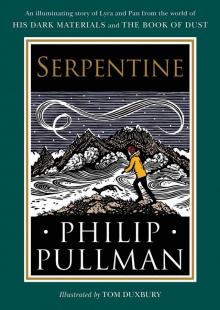 Serpentine
Serpentine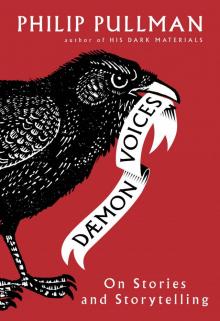 Daemon Voices
Daemon Voices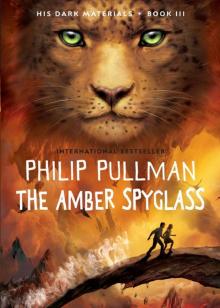 The Amber Spyglass: His Dark Materials
The Amber Spyglass: His Dark Materials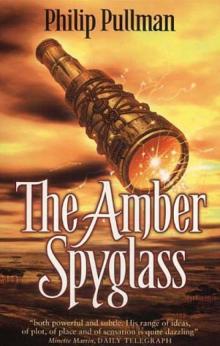 The Amber Spyglass hdm-3
The Amber Spyglass hdm-3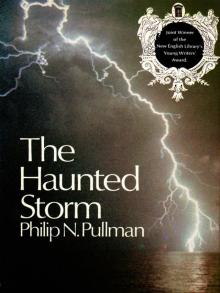 The Haunted Storm
The Haunted Storm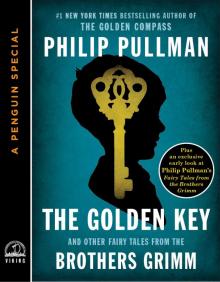 The Golden Key
The Golden Key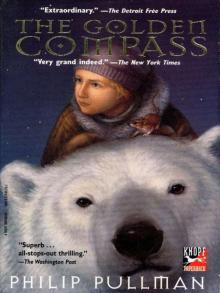 His Dark Materials 01 - The Golden Compass
His Dark Materials 01 - The Golden Compass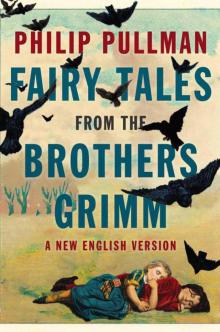 Fairy Tales from the Brothers Grimm: A New English Version
Fairy Tales from the Brothers Grimm: A New English Version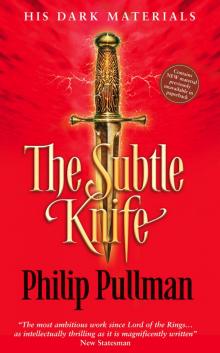 His Dark Materials 02 - The Subtle Knife
His Dark Materials 02 - The Subtle Knife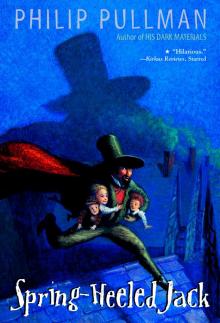 Spring-Heeled Jack
Spring-Heeled Jack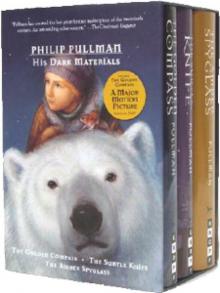 The Golden Compass hdm-1
The Golden Compass hdm-1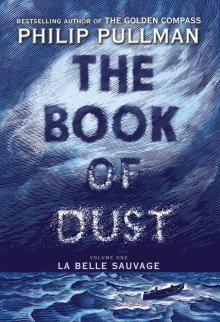 The Book of Dust, Volume 1
The Book of Dust, Volume 1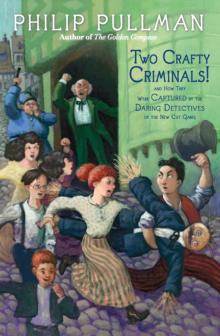 Two Crafty Criminals!
Two Crafty Criminals!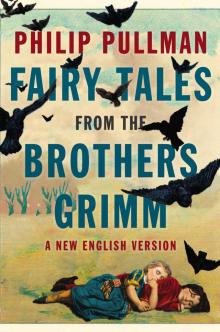 Fairy Tales from the Brothers Grimm
Fairy Tales from the Brothers Grimm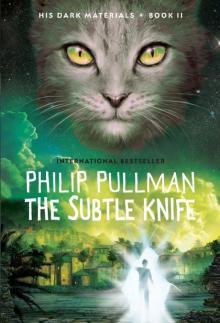 The Subtle Knife: His Dark Materials
The Subtle Knife: His Dark Materials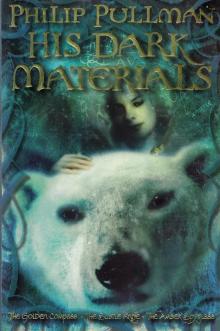 His Dark Materials Omnibus
His Dark Materials Omnibus The Golden Compass: His Dark Materials
The Golden Compass: His Dark Materials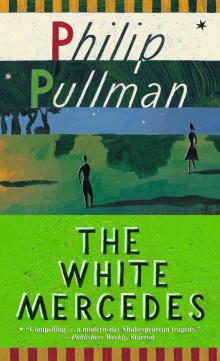 The White Mercedes
The White Mercedes